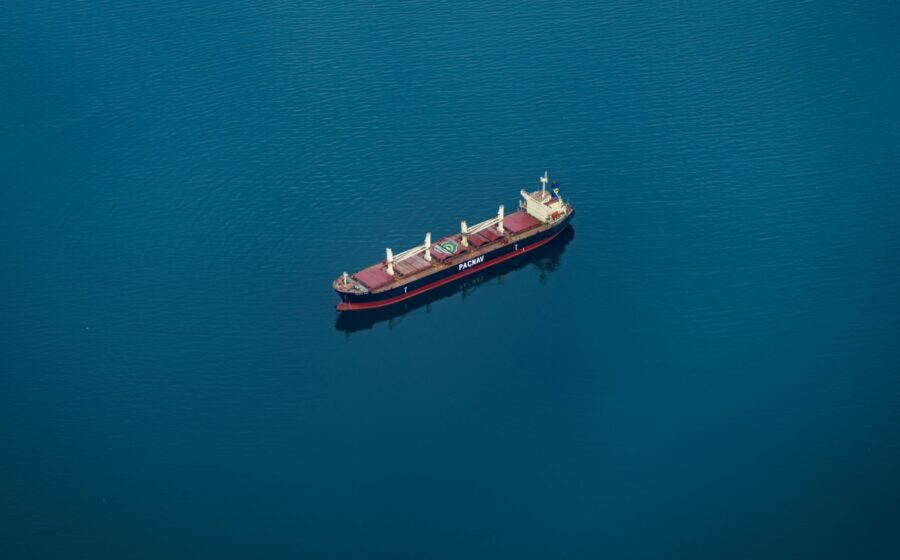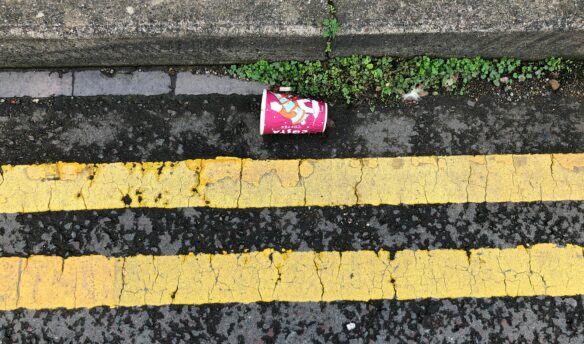Shipping is a hugely important part of the coffee supply chain, and any interruption can have widespread consequences. In 2021, the Ever Given ship got stuck in the Suez Canal for six days, severely impacting international trade, including coffee, to the tune of nearly $60 billion. Since November 2023, Houthi rebels in Yemen have been obstructing the flow of goods—coffee again included—through the Red Sea.
Houthi rebels, according to the US State Department, “control approximately one-third of the country’s territory, containing 70 to 80 percent of the population.” They’ve launched dozens of attacks on cargo ships over the past few months, including firing rockets at multiple vessels and hijacking one.
The group’s stated aim is to put pressure on Israel to end its assault on Gaza, which has been in full force for more than four months and killed over 29,000 Palestinians, with about 40% estimated to be children.
In response to the Houthi’s threat to global commerce, the United States, the United Kingdom, and the European Union have all launched naval operations in the Red Sea. The US and UK have launched dozens of deadly airstrikes on areas of Yemen controlled by Houthi fighters, killing more than 30. On January 11, 2024, US President Joe Biden said he would “not hesitate to direct further measures to protect our people and the free flow of international commerce as necessary.”
This crisis is playing out in the Red Sea, home to the Port of Mokha, a historically vital port credited with spreading coffee around the world. Despite the rising death toll, the specialty coffee industry’s response has been the same as every other sector: concern about delays and rising shipping costs.
Shipping over Solidarity
Aside from some individual instances of solidarity and calls for a ceasefire, the coffee industry as a whole has been almost silent about the ongoing genocide in Gaza. Coffee is a globally traded commodity and thus intertwined with geopolitics in a way that the industry seems to understand at some points—but ignores at others.
In the wake of the Houthi attacks, several large shipping companies, like Maersk and Hapag-Lloyd, said they would suspend their Red Sea trade routes. “30% of global consumer goods and container shipping goes through Suez,” Marco Forgione from the Institute of Export & International Trade told Time Magazine. “That’s everything from clothes to washing machines and electronics as well as tanker shipping—oil, gas, palm oil, wheat, corn, tea, coffee.”
Europe is the world’s largest market for coffee, consuming nearly a third of all coffee produced globally in 2021. Traditionally, coffee grown in Asia and East Africa travels to Europe via the Red Sea and Suez Canal, a much faster—and cheaper—journey than the extended route around the Cape of Good Hope.
Green coffee importers have already told customers to expect delays, with some rerouting their cargo around the Cape and warning of increased costs. “For South-East Asian and East African coffee en route to Europe, unintended consequences include a rise in freight costs as some shipping companies have introduced surcharges to account for the now-extended transit times,” the International Coffee Organization said in a statement on Wednesday, January 3, 2024.
While the industry has responded to shipping delays, there has been no condemnation of Israel’s actions in Gaza or the disproportionate response from the US and UK in Yemen—no statement from the Specialty Coffee Association, the National Coffee Association, or any multinational coffee companies.
Compare this to the response following Russia’s 2022 invasion of Ukraine. On March 1, 2022, the SCA posted a statement condemning “the Russian regime’s invasion of Ukraine and the violence and displacement being inflicted” while banning Russian baristas from taking part in the upcoming World Coffee Championships. Companies from Starbucks to Keurig Dr Pepper withdrew from Russia or stopped selling there.
Instead, news pieces lament the impact on trade and coffee shipping delays. “The Red Sea turmoil that’s wreaking havoc on shipping is hitting the market for robusta beans, the variety used in instant coffee, and upending the usual flow of trade,” read the opening line of a January piece in Bloomberg.
“Undoubtedly, there will be financial repercussions of the Red Sea crisis and its impact on global trade,” a piece in Perfect Daily Grind states. “And with many coffee businesses still facing higher energy and food costs—tightening already slim profit margins—it’s likely that end consumers will also have to pay more.”
Political and Cultural Pressure
Some, including the US president, have dismissed the Houthis actions as piracy—and opportunistic at that. Although they claim only to target Israeli-linked ships, Houthi rockets have also aimed at vessels with no ties to the country. However, as the Guardian’s defense and security editor Dan Sabbagh notes, what may have started as opportunistic “appears to have become something different: a determined attempt to attack and provoke a retaliation from Washington as the US electoral cycle is heating up, bringing the UK and other allies alongside.”
Analysts told Al Jazeera that it is also likely that the attacks are part of a broader regional diplomatic strategy as part of the Houthis’ ongoing ceasefire negotiations with Saudi Arabia and the internationally recognized Yemeni government.
The worldwide coffee industry is worth around $142 billion, and its broader economic impact is significantly higher. There are many coffee brands with revenue in the billions, and they donate large sums to political candidates of all stripes. The National Coffee Association even describes itself as an advocacy group, “advocat[ing] for regulations and policies that facilitate coffee production, trade, and consumption.” That’s before you consider the cultural weight of brands like Starbucks and Nespresso or specialty companies like Blue Bottle and Intelligentsia. All this to say, the industry (at least in the global north) is rich and influential and thus holds a lot of power.
The specialty coffee industry considers itself special—in terms of coffee quality, how it treats the people who grow the product, and the ethics with which it approaches trade. However, the ongoing silence around Gaza and the hyperfocus on shipping costs and delays without grappling with the reasons behind the disruption makes us question just how far those values really go.
A version of this story originally appeared on The Pourover, a newsletter written by Fresh Cup contributor and Coffee News Club author, Fionn Pooler.
















